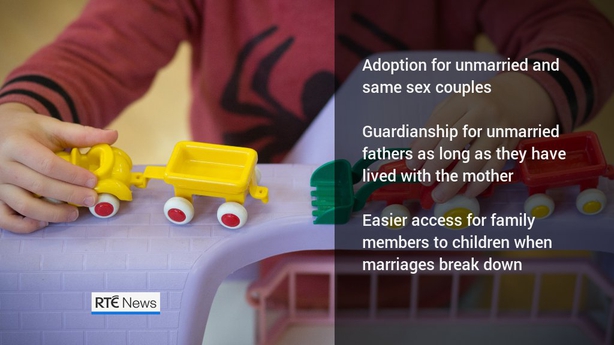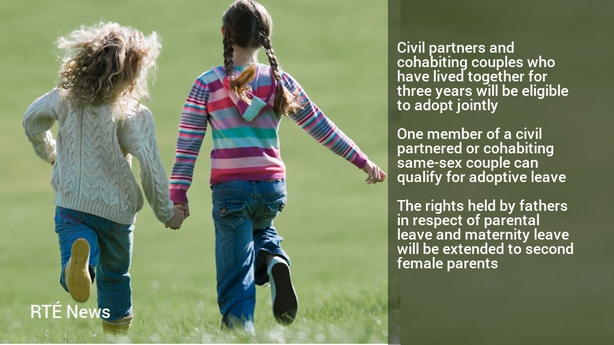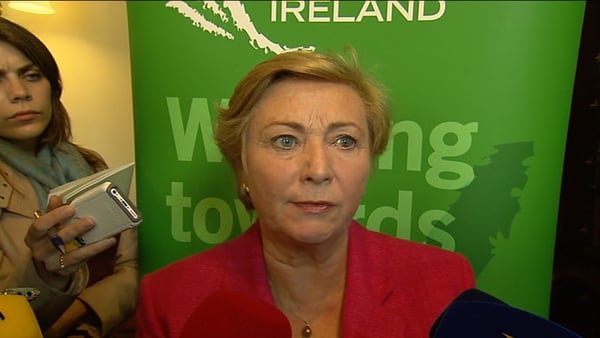Minister for Justice and Equality Frances Fitzgerald has received Cabinet approval for the Children and Family Relationship Bill.
The bill will be debated next week and enacted by 24 March.
It includes provisions for children being parented by same-sex couples and covers children born through donor-assisted human reproduction (AHR).
Ms Fitzgerald said: "This is a major reform of family law which so clearly sets out to vindicate the equal right of every child to the recognition of their families."
"It provides a legal bedrock upon which the diversity of families will be valued, recognised and protected in today's Ireland.
"It addresses the identity issue of children born through donor AHR, as recommended in the 2005 Report of the Commission on Assisted Human Reproduction and the Report of the Law Reform Commission in 2010."

The bill, which runs to more than 170 sections, extends guardianship, custody and adoption rights to different family situations.
Under the bill, civil partners and cohabiting couples who have lived together for three years will be able to jointly adopt, which they currently cannot do as a couple.
If a spouse, civil partner or partner has lived with a parent for three years and has looked after the child for two years, he or she will be able to apply for guardianship on day-to-day matters or custody.
The bill also allows a relative to apply for custody if they have looked after the child for a year and where no guardian is able or willing to do so.
Unmarried fathers will have automatic guardianship rights if they have lived with the mother continuously for a year, including three months after the birth.
This bill regulates and sets out parental rights in the area of assisted human reproduction.
A child conceived in this way will be able to trace their donor through a register.
It proposes to regulate areas including surrogacy, embryo donation; the screening of embryos for serious genetic diseases or for sperm and egg donation; and research in this area.
Ms Fitzgerald said the rights of young people represented a golden thread running through the bill.
The minister described the measure as a wide-ranging reform of family law providing legal support and protection for children in their relationships with those parenting them.

Ms Fitzgerald denied she was rushing the legislation through ahead of the marriage equality referendum.
They were two separate issues she insisted.
The minister told journalists it would get whatever time it needed in second stage and committee but expected it would be through the Oireachtas by the end of March.
Asked about the issue of gay adoption the Minister said the legislation recognised the diversity of family types in Ireland in the 21st Century.
The Special Rapporteur on Child Protection has said that it is the most important change in family law - a milestone in the area of children's rights.
Dr Geoffrey Shannon told RTÉ's Six One news that hundreds of thousands of families will be affected by the legislation.
He said that the core principle at the centre of the law is that the best interest of the child is the paramount consideration.
Earlier, Taoiseach Enda Kenny described the bill as the most important change in family legislation since the foundation of the State.
He said the bill required adequate time for discussion, and would get it.
Minister for Public Expenditure and Reform Brendan Howlin said the legislation would deal with complex issues that would affect every household in the State.
Fianna Fáil had called on the Government not to rush the bill through, describing it as a landmark and transformative piece of legislation.
Michael McGrath said the party had not yet seen the details of the bill, adding that it would be discussed at a later meeting.

